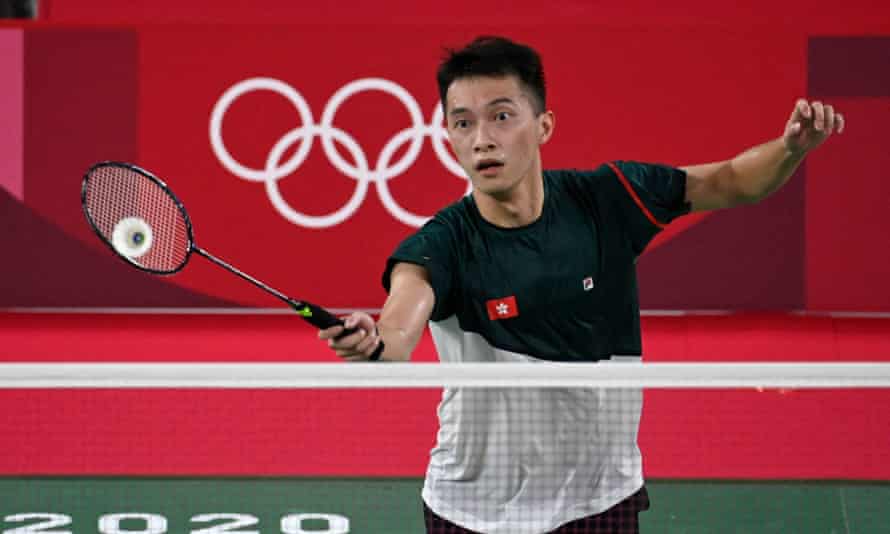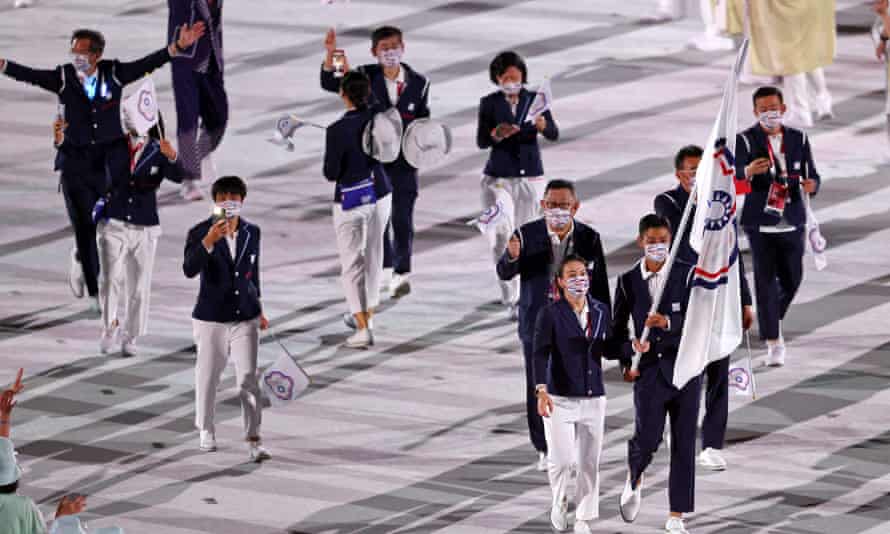
In July, more than 5,000 people gathered along the sides of the APM shopping centre in Hong Kong on a Monday night. They waved flags and screamed “Hong Kong” at the TV. In a new, shiny mall in the industrial district of Kwun Tong, an enormous screen had been hoisted up into the centre of the main concourse, so people could watch the Olympics.
Videos from the time showed people crowded against the railings, stacked up across multiple stories, as they watched fencer Edgar Cheung Ka Long win Hong Kong’s first gold medal in 25 years. Across the territory, throughout the Olympics, shopping centres became a kind of town square, kept open late into the evening.
The Tokyo Olympics were Hong Kong’s most successful ever. The city won six medals, more than in all previous Olympics combined. Thousands watched Siobhan Haughey win Hong Kong’s first-ever medals in swimming: silver in the women’s 200m freestyle and 100m freestyle; both Asian records. When the athletes returned, a humbly sized contingent of 46, they were paraded through the city in an open-top bus.
The Olympics – and sport more broadly – have become a fresh rallying point for the Hong Kong identity, a source of politicisation, and a site for old arguments. This weekend, Hong Kong marathon runners were ordered to cover up “political” slogans and tattoos before being allowed to compete. It was the first major group sporting event since the introduction of the national security law. Now attention turns to the Beijing Winter Games in February. Athletes are still in the process of qualifying for the winter events, but two Alpine skiers from Hong Kong have already qualified, meaning the region will be sending a team to Beijing.
We are ‘Hong Kong’
Hong Kong competes separately from China at the Olympics, and has done so since 1954, when it was a British colony. As the world focuses more on the geopolitical definitions of Hong Kong and Taiwan, amid China’s increasing control over the former, and claims of sovereignty over the latter, the Olympics has stood out as one of the few global events where all three are kept separate and compete directly against each other.
Cheung’s gold medal at the Tokyo Games was the first for Hong Kong since the handover in 1997. In Hong Kong, as they broadcast Cheung’s medal ceremony on the big screen at the APM mall, a 40-year-old man allegedly started booing the Chinese national anthem, and waving an old British colonial flag. He went home, and a few days later, was arrested, under a law introduced last year that criminalises insulting the Chinese flag or national anthem. Gordon Mathews, a professor of anthropology at the Chinese University of Hong Kong, told the South China Morning Post that he felt some people in the crowd used the Olympics to test what they could do under the national security law “that would not get them to jail”.
Other controversies surfaced during the Tokyo Games. Badminton player Angus Ng Ka-long, a great medal hope, kicked off a political firestorm simply for wearing a plain black shirt. Ng, ranked 9th in the world, was “condemned” by Nicholas Muk Ka-chun, a history teacher who is a member of the pro-Beijing DAB party, after he played his first match in a black shirt and shorts, without the Hong Kong flag. Black is a colour still heavily associated with pro-democracy protesters, and Muk wrote on Facebook: “If [you] don’t want to represent Hong Kong China, please choose to withdraw from the competition”.

Ng, a normally reserved and media-shy athlete, immediately clarified that it was not a political statement. He had recently left his sponsor, he said, so had used his own shirt, and had chosen it only because it was comfortable. For the second match, he and the Hong Kong badminton association scrambled to find him a replacement, even requesting assistance from the home affairs department. The next match, he played in green and white, with the symbol of Hong Kong, the five-sided bauhinia flower, over his chest. He was knocked out, in an upset, by the world number 59, Kevin Cordon. In his post-match interview, he said he felt “tense and under pressure”.
The fact that Ng, a devotedly non-political athlete, was caught in the middle of this debate is the latest example of sport’s increasing politicisation and partisanship on an island that also divides its shops into yellow (pro-protesters) and blue (pro-police). Even after Ng said the shirt was not political, another politician, executive councillor Ronny Tong, commented that he should still always avoid wearing black. “[We] have had bad experiences so we are afraid,” he said. “It’s better not to wear black, otherwise people may have a heart attack while watching the television.”
Fears athletes may be silenced
As arrests continue in Hong Kong under the national security law and China escalates its military drills near Taiwan, the same political questions raised this year look to intensify in the led up to the 2022 Winter Games in Beijing.
Human Rights Watch has warned that China could cancel the Olympic visas of “athletes whose opinions it doesn’t like”. The European Elite Athletes Association has also called for the IOC to ensure that athletes have “the right to express their concerns”. In July, the IOC assured media that Hong Kong and Taiwan would be able to compete in Beijing regardless of any political tension.

Hong Kong’s chief executive Carrie Lam, like many politicians, has used the region’s recent Olympic success to claim that it is united rather than divided. She said that Haughey “brought glory to the city”, and that Cheung “has made all of us proud”.
Lam has announced more funding for sport, and has been clear that she does not see sporting success as making Hong Kong’s identity more independent, or distanced from China. Lam has been staunchly against any calls for boycotts of the 2022 Winter Olympics. “Thomas Bach, the IOC chairman, has repeatedly said that ‘sports is sports’,” she has said. “One should not try to politicise sports.”
